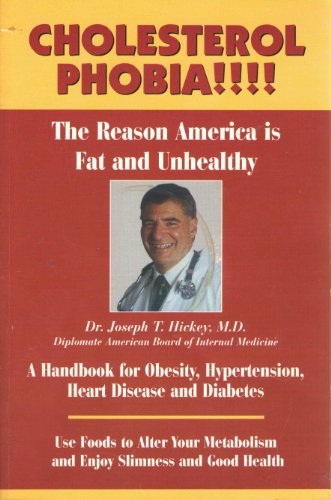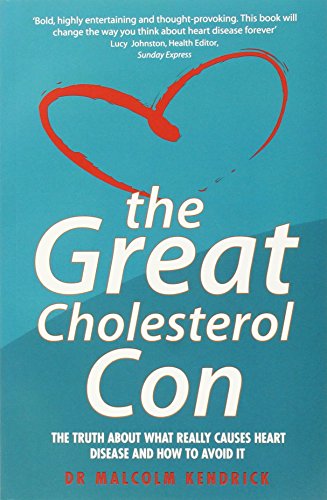Modern medicine has done it again. Long-term use of drugs called bisphosphanates designed to prevent bone loss with advancing age have now been associated with higher risk of any clinical fracture. Researchers say: “These results add to concerns about the benefit of very long-term bisphosphonate use.” [Journal American Geriatrics Society May 29, 2017]
Historically a bisphosphonate (Fosamax) caused its manufacturer to pay $27.7 million in a settlement over bone deterioration in the jaw among 1200 people in 2013. [Reuters Dec 9, 2013]
Calcium is one of the most-often prescribed dietary supplements by physicians primarily recommended for postmenopausal bone loss (osteoporosis). But the problem of osteoporosis is caused by a lack of estrogen, not a shortage of calcium.
Current Prices on popular forms of Gold Bullion
Estrogen sends a signal to hold calcium in bones. Long-term use of hormone replacement (estrogen) is associated with lower rates of coronary artery calcification in older women. [Journal American Geriatrics Society Nov 11, 2016]
Hormone replacement decreases the incidence of osteoporotic bone fractures by 25% to 50%. [Cancer Journal 2009]
 Cholesterol Phobia!!!!...
Best Price: $2.02
(as of 03:10 UTC - Details)
Cholesterol Phobia!!!!...
Best Price: $2.02
(as of 03:10 UTC - Details)
This fact has been known of for the past two decades but modern medicine has frightened women away from hormone replacement. [Obstetrics Gynecology June 1997]
Pouring more calcium into the body of a postmenopausal female is akin to pouring calcium into a barrel with a hole in the bottom — it ends up being deposited in the arteries. Calcium supplementation is associated with heart attacks in postmenopausal women. [American Family Physician Feb 1, 2013]
Of interest, a recent study shows that high-dose calcium supplementation (more than 1000 mg/day) increases the risk for strokes but the addition of vitamin D offsets this hazard. [Journal American Heart Association May 18, 2017] Vitamin D is a natural anti-calcifying agent.
These bone hardening drugs, which are fraught with side effect such as bone pain, indigestion, skin rash and flu-like symptoms, were prescribed 21.3 million times in 2013. Who will put a stop to this misdirection?
Over and over again
It appears modern medicine’s prescriptions are covertly designed to produce a false sense of health while drumming up more disease to treat.
Eggs on the list
Remember when cardiologists suggested the use of margarine instead of butter? What resulted? The trans fats (hydrogenated fats) in
 The SAM-e Handbook: Th...
Best Price: $2.00
(as of 01:45 UTC - Details)
margarine ended up causing more, not less heart disease. [JAMA Internal Medicine Aug 1, 2016]] In fact, the New York City ban on trans fats, which began in 2007 has resulted in a 6% drop in strokes and heart attacks (43 less strokes and heart attacks per 100,000 people). [Daily Mail April 12, 2017] Meanwhile, butter doesn’t appear to be associated with strokes or cardiovascular disease. [Daily Mail Jun 29, 2016; PLoS One Jun 29, 2016]
The SAM-e Handbook: Th...
Best Price: $2.00
(as of 01:45 UTC - Details)
margarine ended up causing more, not less heart disease. [JAMA Internal Medicine Aug 1, 2016]] In fact, the New York City ban on trans fats, which began in 2007 has resulted in a 6% drop in strokes and heart attacks (43 less strokes and heart attacks per 100,000 people). [Daily Mail April 12, 2017] Meanwhile, butter doesn’t appear to be associated with strokes or cardiovascular disease. [Daily Mail Jun 29, 2016; PLoS One Jun 29, 2016]
Since the 1970s it was claimed that the consumption of eggs increases the risk for cardiovascular disease with eggs being the richest dietary source of cholesterol. But recent scientific reviews reveal no association between egg consumption and risk for heart disease. [Journal Danish Medical Society May 15, 2017; Canadian Journal Diabetes March 28, 2017]
Eighteen years ago, before the turn of the century, an authoritative report published in the Journal of the American Medical Assn. noted egg consumption was unlikely to have a substantial impact upon the incidence of strokes or heart attacks. [Journal Am. Med. Assn. April 21, 1999]
Cholesterol phobia is contrived
A recently published report claims statin cholesterol-lowering drugs dramatically reduced the occurrence of a major adverse cardiac event (heart attack) even among heart attack patients with very low LDL cholesterol. But statin drugs were really no better than chance to prevent cardiac death. [American Journal Cardiology April 27, 2017]
Statin cholesterol-lowering drugs, used by over 20 million Americans, many who are healthy and only have modest risk factors for heart disease, showed no benefit in reduction of all-cause or coronary heart disease mortality in the most recent landmark report. [Science Daily May 23, 2017; JAMA Internal Medicine May 22, 2017]
 The Miracle of Bi-iden...
Buy New $9.99
(as of 03:25 UTC - Details)
The Miracle of Bi-iden...
Buy New $9.99
(as of 03:25 UTC - Details)
Furthermore, statin drugs do not benefit older adults (over age 65-70). [The Conversation May 29, 2017; Current Opinion in Cardiology July 2014] Almost half (48.5 percent) of Americans age 65 and over reported taking aspirin every day or every other day. [Agency Health Care Policy Research July 2007]
But what 20+ million Americans hear is that they will die of a heart attack if they don’t take a statin drug.
Aspirin instead of wine
Dr. Serge Renaud of France was the cardiologist who first coined the term “French paradox” on a CBS’ Sixty Minutes TV report (the fact the wine drinking French had higher cholesterol numbers than Americans but a vastly lower rate of death from coronary heart disease than North Americans). Dr. Renaud noted in 1992 while it may seem paradoxical that the French who consume larger amounts of saturated fat but have a lower cardiovascular death rate, it may actually be wine’s ability to inhibit formation of blood clots rather than reduction of cholesterol in coronary arteries that produces this beneficial effect. [Lancet June 20, 1992]
While the French had their wine, Americans had their aspirin tablets. In the 1990s the FDA approved use of aspirin to prevent a first-time heart attack. But that turned out to be another misdirection. While aspirin may be effective among individuals who have already had a heart attack, in 2014 the FDA concluded the data do not support the use of aspirin as a preventive medication by healthy people who have not had a heart attack, stroke or cardiovascular problems. [Reuters May 5, 2014]
 The Great Cholesterol ...
Best Price: $3.82
Buy New $2.99
(as of 07:30 UTC - Details)
The Great Cholesterol ...
Best Price: $3.82
Buy New $2.99
(as of 07:30 UTC - Details)
But then it was realized a full-size 325-milligram aspirin tablet may prevent a heart attack caused by clotting in a coronary artery, but it comes with the risk of bleeding gastric ulcers and possible brain hemorrhages. So this represented disease substitution rather than prevention.
So doctors then suggested baby-size 81-milligram aspirin, which is frankly ineffective. Two baby aspirin (162 mg) are needed. [American Journal Medicine 2009] By misdirection an estimated 50 million Americans take a baby aspirin to prevent a heart attack.
The misdirection offered by modern medicine cannot be explained away by ignorance or changing science. The public is being gamed to ensure there is enough disease for doctors to treat. Caveat emptor.




